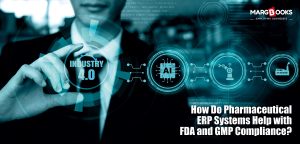The pharmaceutical industry plays a critical role in healthcare by developing, producing, and distributing medicines that improve and save lives. Ensuring these medicines meet strict quality standards is essential to maintaining public health and regulatory compliance. Over the years, technological advancements have significantly transformed quality control in the pharmaceutical industry, enhancing efficiency, accuracy, and overall product safety.
The Evolution of Quality Control in the Pharmaceutical Industry
Traditionally, quality control in pharmaceutical companies relied heavily on manual testing methods, paperwork, and human intervention. These processes, though effective, were time-consuming, prone to errors, and lacked the precision modern standards demand. The integration of advanced technology has streamlined this crucial aspect, ensuring safer products reach consumers faster.
Key Technological Innovations Enhancing Quality Control
Here are some notable technological advancements that have revolutionised quality control in the pharmaceutical industry:
1. Automation and Robotics
- Precision Testing: Automated systems ensure precise measurements in drug formulation, reducing human error.
- Increased Efficiency: Robots perform repetitive quality checks at high speeds, improving batch testing timelines.
- Enhanced Safety: Automated equipment minimizes exposure to hazardous chemicals, ensuring a safer working environment.
2. Artificial Intelligence (AI) and Machine Learning (ML)
- Predictive Analytics: AI algorithms can predict potential quality issues based on historical data, allowing proactive measures.
- Image Analysis: AI-driven image recognition identifies product defects during visual inspections.
- Data Pattern Recognition: ML models identify trends that might indicate quality control issues, improving preventive strategies.
3. Internet of Things (IoT)
- Real-Time Monitoring: IoT sensors track environmental conditions such as temperature and humidity in storage facilities, ensuring optimal conditions for pharmaceutical products.
- Enhanced Traceability: IoT-enabled devices provide real-time data during manufacturing, improving product tracking across the supply chain.
4. Cloud-Based Solutions
- Centralised Data Management: Cloud platforms enable seamless data storage and sharing across departments.
- Compliance Management: Cloud systems simplify compliance reporting by maintaining accurate records of quality control processes.
- Remote Monitoring: Quality control experts can oversee operations remotely, ensuring consistent product quality.
5. Pharma Billing and Distribution Software
Technological advancements in business management tools have also contributed to enhanced quality control standards. Solutions like Pharma billing software and Pharma distribution software ensure efficient record-keeping, improved inventory control, and traceable product movement.
Key Benefits of Pharma Billing and Distribution Software in Quality Control:
- Inventory Management: These tools ensure expired or damaged stock is flagged promptly, reducing the risk of compromised products reaching consumers.
- Batch Tracking: Pharma distribution software helps track each product batch through the supply chain, improving traceability.
- Compliance Support: Modern software solutions ensure that documentation, invoices, and reports meet regulatory guidelines, improving audit readiness.
Role of MargBooks in Ensuring Quality Control
MargBooks, a leading cloud-based solution, offers exceptional tools to enhance quality control processes in the pharmaceutical sector. By integrating Pharma billing software and Pharma distribution software, MargBooks helps businesses manage their entire supply chain efficiently.
Key Features of MargBooks for Quality Control:
- Real-Time Data Access: MargBooks allows stakeholders to track stock movement, expiry dates, and sales data in real-time.
- Automated Alerts: The system sends timely alerts for stock expiry, ensuring outdated products are removed before reaching consumers.
- Comprehensive Reporting: MargBooks simplifies the creation of detailed compliance reports, reducing errors and enhancing audit preparation.
The Future of Technology in Pharmaceutical Quality Control
As the pharmaceutical industry continues to grow, technology will play an increasingly vital role in improving quality control processes. Emerging innovations like blockchain for traceability, augmented reality (AR) for visual inspections, and advanced data analytics will further revolutionise the industry.
Conclusion
Technological advancements have undoubtedly transformed quality control in the pharmaceutical industry, improving accuracy, efficiency, and safety. Solutions such as Pharma billing software and Pharma distribution software ensure streamlined operations, better inventory management, and enhanced compliance. Platforms like MargBooks further simplify these processes, helping businesses maintain superior product quality standards.
By embracing these innovations, pharmaceutical companies can safeguard public health while meeting industry regulations with greater confidence and precision.




